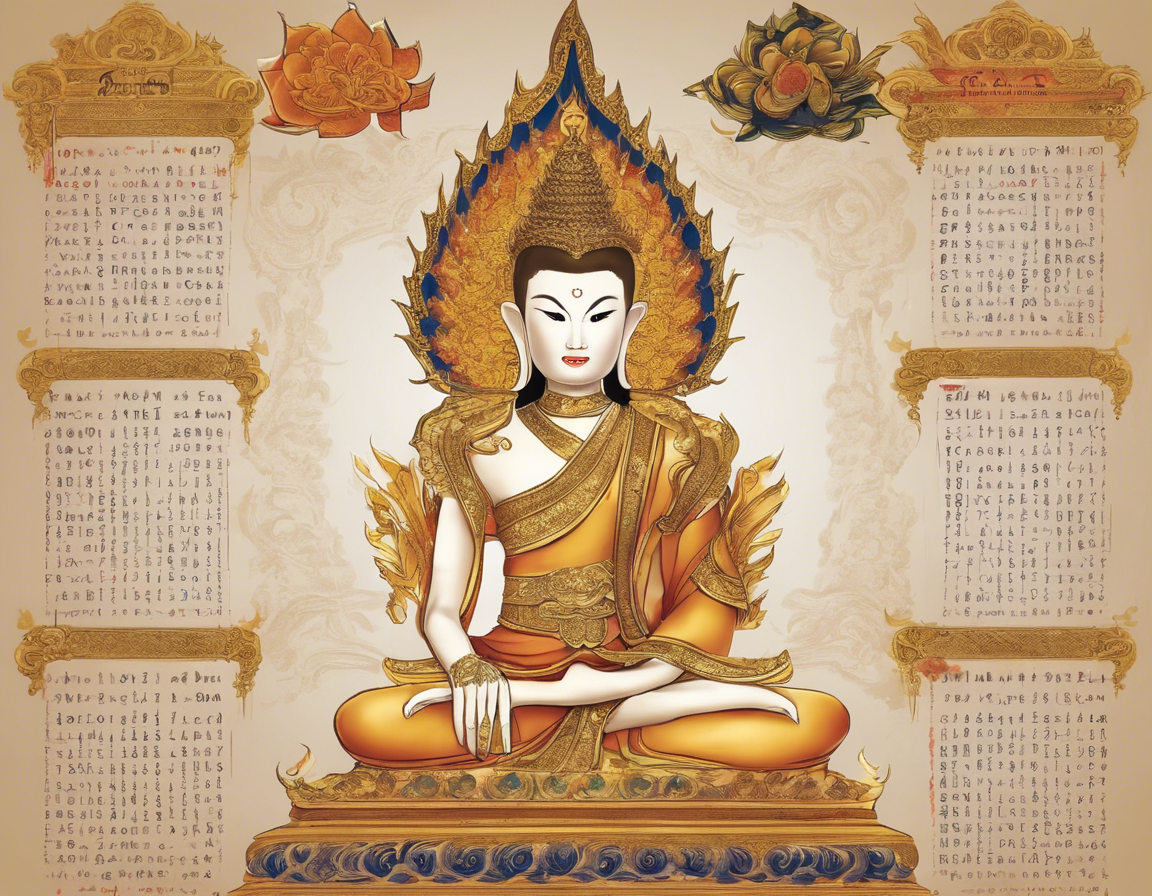Exploring Unique Thai Last Names: A Brief Guide

Thailand, known for its rich culture, vibrant traditions, and delicious cuisine, also boasts a fascinating array of unique last names. Thai last names, also known as surnames or family names, play a significant role in the country’s social fabric and identity. In this guide, we will delve into the intricacies of Thai last names, exploring their origins, meanings, and cultural significance.
Thai Last Names: A Legacy of Traditions and Meanings
Origins of Thai Last Names
Thai last names have diverse origins, influenced by various factors such as geography, occupation, ancestry, and personal attributes. Some Thai surnames are derived from ancestral names, reflecting family lineage and heritage. Others are based on geographical locations, indicating a person’s place of origin. Moreover, occupational last names in Thailand highlight a person’s profession or work specialization.
Common Themes in Thai Last Names
Royal Connections
Royal connections feature prominently in Thai last names, with some surnames reflecting ties to the monarchy or noble lineage. Names containing the prefix “วชิร” (Wachir, meaning glory) or “วรรธน” (Wara, meaning dignity) often signify royal connections.
Nature and Elements
Nature and elements hold significance in Thai last names, with references to animals, plants, and natural phenomena. Surnames like “ป่า (Pa, meaning forest)” or “ดอก (Dok, meaning flower)” evoke images of the natural world.
Virtues and Attributes
Virtues and attributes are reflected in many Thai last names, emphasizing qualities such as courage, wisdom, or kindness. Surnames like “สุข (Suk, meaning happiness)” or “จริยา (Jariya, meaning kindness)” highlight positive traits.
Variations in Thai Last Names
Prefixes and Suffixes
Thai last names often feature prefixes or suffixes that provide additional context or meaning. Prefixes like “ชิน” (Chin) or “เพ็ง” (Peng) add depth to the surname, while suffixes such as “กิตติ” (Kitt) or “สุวรรณ” (Suwan) enhance the name’s significance.
Regional Differences
Regional differences influence Thai last names, with certain regions exhibiting unique naming conventions or preferences. For example, surnames in northern Thailand may differ from those in the southern regions due to historical, cultural, or linguistic factors.
Cultural Significance and Symbolism
Thai last names are more than mere identifiers; they embody cultural significance and symbolic meaning. They serve as an expression of identity and belonging, connecting individuals to their heritage and ancestors. Additionally, Thai surnames often carry lucky meanings or auspicious connotations, believed to bring fortune or protection to the bearer.
Rituals and Ceremonies
Rituals and ceremonies in Thailand often involve the recitation or use of last names, underscoring their importance in cultural practices. From birth ceremonies to funeral rites, Thai last names play a role in marking significant life events and honoring traditions.
Unique Thai Last Names: Notable Examples
1. สุริยา (Suriya)
Meaning: Derived from the Sanskrit word for “sun,” Suriya symbolizes light, warmth, and energy.
2. พรหม (Phrom)
Meaning: Phrom signifies divine or godlike qualities, reflecting a sense of spirituality or holiness.
3. มณฑป (Montri)
Meaning: Montri conveys the notion of power, authority, or prestige, suggesting leadership qualities.
Frequently Asked Questions (FAQs)
1. Are Thai last names gender-specific?
Answer: In Thailand, last names are typically not gender-specific, meaning both men and women can inherit and use the same surname.
2. Can Thai individuals change their last names?
Answer: Thai individuals can legally change their last names through a formal registration process, but such changes are subject to specific regulations and approval procedures.
3. Do all Thai last names have meanings?
Answer: Most Thai last names have meanings or symbolic significance, derived from various sources such as nature, virtues, or ancestral connections.
4. How common are royal last names in Thailand?
Answer: While royal last names are not as common as other types of surnames, they hold special historical and cultural value in Thai society.
5. Can foreigners inherit or adopt Thai last names?
Answer: Foreigners residing in Thailand may be able to adopt or use Thai last names, but the process may involve legal requirements and official documentation.
Conclusion
Thai last names embody a tapestry of history, culture, and symbolism, reflecting the diverse influences and traditions of the Thai people. From royal connections to nature-inspired motifs, these surnames carry layers of meaning and significance. By exploring the origins, themes, and variations of Thai last names, we gain a deeper understanding of the country’s rich heritage and identity. Embracing the unique and distinctive nature of Thai last names adds a colorful dimension to the cultural tapestry of Thailand.
